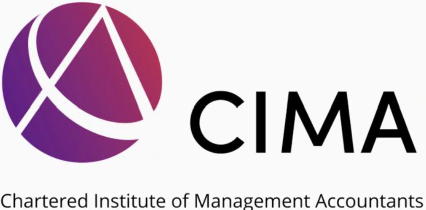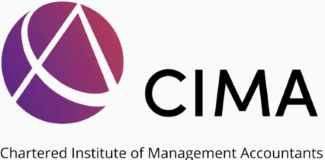Tax Tips
The Tax laws change every year so you need to review your personal situation regularly with tax adviser before make any decision and save tax wherever possible. These Tax Tips are designed to give you some general information only, which might be relevant to you or your business and is not intended to be advice to any specific person. This is just a ideas and guideline according to 2024 Budget.
1. Declare all income
It is essential to disclose all sources of income. It is important to avoid becoming involved in a tax avoidance scheme, regardless of how appealing it may seem. Such schemes include tax evasion, which is the non-declaration of income, capital gains, or the submission of false information. It is essential to refrain from deliberate concealment of information. It is important to note that majority of tax avoidance schemes are identified and caught through anti-avoidance rules, and tax evasion would be illegal (it is a criminal offense).
2. Act on time, timing is everything for tax planning
Timing is very important for the tax planning. The tax planning need to be done in a tax year before the end of the tax year and act accordingly. Once the deadline passes, most of your planning options will close. Deadline was a line drawn by HMRC. There are lots of separate deadlines for UK tax purposes, in the UK this is 5th April. So it is important to considering your planning options for the current tax year before the year end i.e. 5 April.
For example: (1) If you or your partner’s became the highest earner in your family exceeding £60,000 for 2024-25. If so, any child benefit claimed in that year, you may have to pay child-benefit charges (2) If your income exceeding £100,000 for the year, you will start to lose your personal allowance. This loss of your personal allowance (£12,570 for 2024-25), this means that if your income earned between £100,000 and £125,140 then you will end-up paying tax at an effective rate of 60%.
Actions you could take before 5 April to reduce tax liabilities include: Consider personal pension contribution, gift aid donation, bringing forward capital expenditure, repay your employer for any private fuel, deferring bonuses until after 5 April, make tax free gift and utilise all available tax free allowance. If you need help for tax planning, please contact WeAccountants on 07852 758409.
3. Submit the correct tax return and pay tax on time
Every year, millions of people are missing their self-assessment deadline i.e. 31 January, they are faced with penalties and interest charges from HMRC. Also many people are facing fines because of their tax returns not being correct. So it is important to submit your tax returns by a qualified person, because sometimes lots of complex issues make tax returns filling more complicated. People who have filled their tax returns the same for many years without any issues, it does not mean they have been doing it correctly. HMRC has now increased random checking where tax payers have been getting it wrong, when filling their tax return. If anyone who awaits for HMRC to catch them, they have submitted their incorrect tax returns and have not paid tax on time, then they will face a higher penalty also an interest charge. Therefore tax returns must be filled correctly and pay tax on time.
4. Start your business with the right structure: Sole Trader vs. Limited Company
First of all, think about how you should start your business, because the structure of your business can have a significant impact on your tax bills. There are three available options, i.e. as a sole trader, partnership or limited company. Here I have mentioned some facts without going into details.
Sole Trader or Partnership: There is a legal issue which is unlimited liabilities on sole traders or partners. In term of tax, sole traders pay tax on all profit made by business whether or not he actually draws the profit. He will pay tax @20%, 40% & 45% and NIC4 @6% & 2% depending on individual marginal rate. There is not much opportunity for tax planning and not easy to transfer business to next generation. But sole trader has early year favourable loss relief opportunity, so if you make a loss or very low profit in an early year of a business, then it may be advisable to operate a sole trader or partnership.
Limited Company: Company has limited liabilities on shareholders or directors. In term of tax, companies currently pays corporation tax @19%, this rates will be increase from 2023, for small profit rate 19% (profit up to 50k) and main CT rate @25%. Shareholders or directors only pay tax when extracts profit from the company. If they did not withdraw the profit/dividend then there is no tax to pay. If they withdraw the profit as a dividend then no NIC to pay and dividend rate of tax @8.75%, 33.75% & 39.35%. Also limited companies has lots of opportunities for tax planning and profit extraction i.e., salary, dividend, other profit attraction’s and exit planning. It is easy to transfer businesses to the next generation than sole trader businesses. Transfer company’s shares over a number of years by using AE, so no CGT to pay. Please talk to us on 07852 758409 about the best option for your business structure.
5. Make payment to personal pension and gift aid donations –Details coming soon…….
6. Nominated principal residence (main home)
7. Transfer income producing assets to spouse or civil partner
8. Spreading the own company shares between you and your spouse or family member
9. Check your PAYE tax code
10. Let rooms in your own home
11. Pass on a let property to next generation
12. Employers’ pension contributions save NICs
13. Arrange for your company to buy your shares
14. Tax-efficient share scheme for employees
15. Tax- free benefit for employees
16. Transfer your company car into your own name and reduce your tax
17. Invest in a small trading company under EIS, SEIS & VCT
18. Gift early in life time rather then on death bed
19. Make a will and skip a generation
20. Don’t forget to party!
Details coming soon…….







